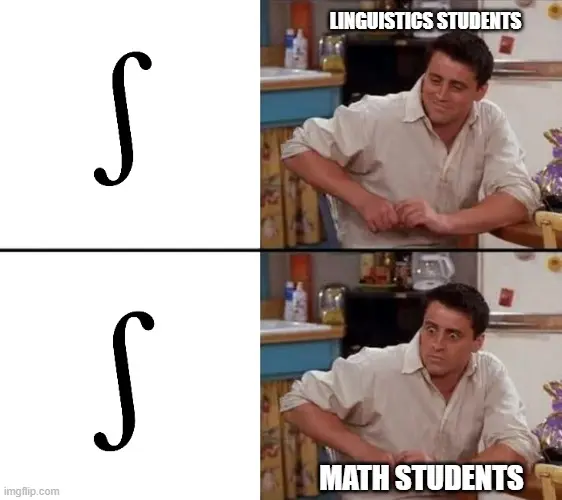this post was submitted on 16 Aug 2023
138 points (96.0% liked)
Linguistics Humor
1387 readers
8 users here now
Do you like languages and linguistics ? Here is for having fun about it
For serious linguistics content: [email protected]
Rules:
- 1- Stay on Topic
Post about linguistics or language humor & memes - 2- No Racism/Violence
- 3- No Public Shaming No shaming someone that could be identifiable or recognizable
- 4- Avoid spam and duplicates
founded 2 years ago
MODERATORS
you are viewing a single comment's thread
view the rest of the comments
view the rest of the comments

I get the feeling you haven't solved many.
What a curious and needlessly judgmental reply!
No judgement, but you should know it's not that simple. You can't just pull out your calculator and add together an uncountably infinite collection of values one-by-one.
I mean, you could add together a finite subset of the values, which turns out to be the only practical way fairly often because a symbolic solution is too hard to find. You don't get the actual answer that way, though, just an approximation.
The actual symbolic approaches to integrals are very algebra-heavy and they often require more than one whiteboard to solve by hand. Blackpenredpen "math for fun" on YouTube if you want to see it done at peak performance.
OP was surely joking in the first post
Huh. If that's the case, I totally missed it. Integrals sounded a lot simpler to me before I had to actually solve them, too, and that's where I assumed OP was coming from. A /s would have helped.
I mean they're right, Leibniz used a modified s for summa, sum. And an integral is just a sum, an infinite sum over infinitesimal summands, but a sum nevertheless.
Yes, they are right about that being the general concept. I only take issue with the implication that it's equally simple.